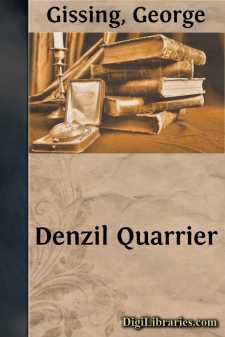Categories
- Antiques & Collectibles 13
- Architecture 36
- Art 48
- Bibles 22
- Biography & Autobiography 813
- Body, Mind & Spirit 142
- Business & Economics 28
- Children's Books 15
- Children's Fiction 12
- Computers 4
- Cooking 94
- Crafts & Hobbies 4
- Drama 346
- Education 46
- Family & Relationships 57
- Fiction 11828
- Games 19
- Gardening 17
- Health & Fitness 34
- History 1377
- House & Home 1
- Humor 147
- Juvenile Fiction 1873
- Juvenile Nonfiction 202
- Language Arts & Disciplines 88
- Law 16
- Literary Collections 686
- Literary Criticism 179
- Mathematics 13
- Medical 41
- Music 40
- Nature 179
- Non-Classifiable 1768
- Performing Arts 7
- Periodicals 1453
- Philosophy 64
- Photography 2
- Poetry 896
- Political Science 203
- Psychology 42
- Reference 154
- Religion 513
- Science 126
- Self-Help 84
- Social Science 81
- Sports & Recreation 34
- Study Aids 3
- Technology & Engineering 59
- Transportation 23
- Travel 463
- True Crime 29
In the Year of Jubilee
by: George Gissing
Categories:
Description:
Excerpt
CHAPTER 1
At eight o'clock on Sunday morning, Arthur Peachey unlocked his front door, and quietly went forth. He had not ventured to ask that early breakfast should be prepared for him. Enough that he was leaving home for a summer holiday—the first he had allowed himself since his marriage three years ago.
It was a house in De Crespigny Park; unattached, double-fronted, with half-sunk basement, and a flight of steps to the stucco pillars at the entrance. De Crespigny Park, a thoroughfare connecting Grove Lane, Camberwell, with Denmark Hill, presents a double row of similar dwellings; its clean breadth, with foliage of trees and shrubs in front gardens, makes it pleasant to the eye that finds pleasure in suburban London. In point of respectability, it has claims only to be appreciated by the ambitious middle-class of Camberwell. Each house seems to remind its neighbour, with all the complacence expressible in buff brick, that in this locality lodgings are not to let.
For an hour after Peachey's departure, the silence of the house was unbroken. Then a bedroom door opened, and a lady in a morning gown of the fashionable heliotrope came downstairs. She had acute features; eyes which seemed to indicate the concentration of her thoughts upon a difficult problem, and cheeks of singular bloom. Her name was Beatrice French; her years numbered six and twenty.
She entered the dining-room and drew up the blind. Though the furniture was less than a year old, and by no means of the cheapest description, slovenly housekeeping had dulled the brightness of every surface. On a chair lay a broken toy, one of those elaborate and costly playthings which serve no purpose but to stunt a child's imagination. Though the time was midsummer, not a flower appeared among the pretentious ornaments. The pictures were a strange medley—autotypes of some artistic value hanging side by side with hideous oleographs framed in ponderous gilding. Miss. ——— then violently rang the bell. When the summons had been twice French looked about her with an expression of strong disgust, repeated, there appeared a young woman whose features told of long and placid slumbers.
'Well? what does this mean?'
'The cook doesn't feel well, miss; she can't get up.'
'Then get breakfast yourself, and look sharp about it.'
Beatrice spoke with vehemence; her cheeks showed a circle of richer hue around the unchanging rose. The domestic made insolent reply, and there began a war of words. At this moment another step sounded on the stairs, and as it drew near, a female voice was raised in song.
'And a penny in his pocket, la-de-da, la-de-da,—and a penny in his pocket, la-de-da!'
A younger girl, this, of much slighter build; with a frisky gait, a jaunty pose of the head; pretty, but thin-featured, and shallow-eyed; a long neck, no chin to speak of, a low forehead with the hair of washed-out flaxen fluffed all over it. Her dress was showy, and in a taste that set the teeth on edge. Fanny French, her name.
'What's up?...












